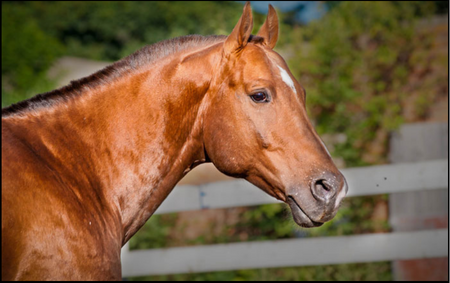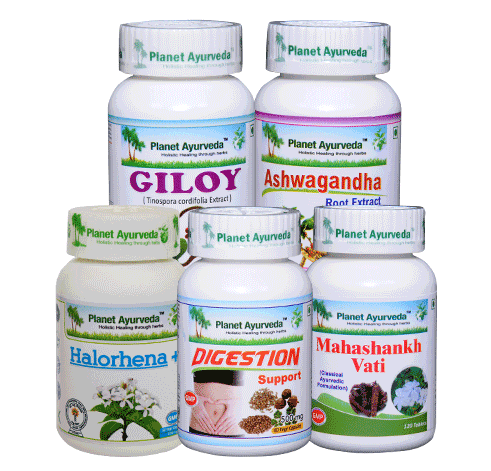AYURVEDIC TREATMENT FOR POTOMAC HORSE FEVER (INTESTINAL BACTERIAL INFECTIONS IN HORSES)
ABSTRACT
Potomac Horse Fever is a seasonal disease and acute enterotyphlocolitis of horses caused by infection with monocytotropic rickettsia, Neorickettsia risticii, formerly called Ehrlichia risticii. In simple terms, we can say that colitis or diarrhoea is caused by Neorickettsia risticii. Geographically restricted to a limited area in North America. Neorickettsia risticii is a gramme-negative coccus. Now we will discuss PHF in detail and also discuss how Ayurveda can play a role in the treatment of these intestinal bacterial infections.

INTRODUCTION
Potomac Horse Fever (PHF) originated from a gramme-negative coccus. It was first reported in 1979 in the Potomac River Valley of Maryland. The disease is regularly seen close to water sources like streams as well as on inundated fields, and it happens all the more frequently between May and November. Its incubation period is somewhere in the range of 1–3 weeks. However, with timely recognition and appropriate treatment, PHF can be managed with support. You can help protect your horse from this disease by taking care of his health, especially in the summer and autumn months.
CLINICAL SIGNS
- Mild Colic
- Pyrexia
- Enterocolitis
- Watery Diarrhea (24–48 hours)
- Laminitis
- Sepsis
- Dehydration
- Peripheral Oedema
- Gastrointestinal Stasis
- Mortality Shifts From 5 to 30%.
- Long-term sequelae, for the most part, connect with laminitis
- Anorexia
- Depression
- Subcutaneous oedema of the abdomen and thorax
- Tachycardia
- Abortion
CLINICAL PATHOLOGY
- Haematological Examination
- Serum Biochemical Analysis
SYMPTOMS
- Ditch Fever
- Shasta River Crud
- Churrido Equino
- Equine Monocytic Ehrlichiosis
- Equine Ehrlichial Colitis
- Equine Neorickettsiosis
RISK FACTORS
- Uncommon below 1 year of age
- The peracute disease can occur in foals.
- The risk is greater when housed on premises with a history of previous infections or those that have other livestock.
- Nighttime use of barn lights, which attract
DIAGNOSIS
- PCR Assay
- Rising Paired Titers
- Cell culture of N. risticii
DIFFERENTIAL DIAGNOSIS
- Diarrhea caused by Antibiotic-induced colitis, Clostridium difficile colitis
- Abortion is caused by Leptospirosis, Salmonella abortusequi, congenital anomalies, and Equine herpesvirus-1.
TREATMENT- IN ALLOPATHY
- Prophylactic Cryotherapy
- Fluids
- NSAIDs
- Oxytetracycline
- Doxycycline
- Erythromycin
- Rifampin
- Combination of Trimethoprim and Sulfonamide
PREVENTION
- The prevention of PHF often depends on management strategies.
- Although a vaccine is available against PHF, its efficacy is uncertain.
- Keeping house lights on or replacing them with blue light at night can reduce the number of may and witch flies attracted to the house.
- Keeping food sealed and sterile will reduce the risk of disease.
- Early detection of PHF symptoms is important for prompt treatment and the reduction of complications.
AYURVEDIC OVERVIEW
There are three branches of knowledge in Ayurveda that are 5000 years old:
- Ayurveda (Human Ayurveda)
- Pashu Ayurveda (Animal Ayurveda)
- Vriksh Ayurveda (Planet Ayurveda)
Many veterinary medicines and healing techniques are mentioned in ancient Ayurvedic texts. Ayurvedic veterinary medicine, especially for animals, achieves good results and avoids the negative side effects of modern medicine. Herbs like Ashwagandha, Amla, Bhrami, and Gokshura are effective in treating problems like diarrhoea, infections, and other ailments. This herb has been shown to strengthen the immune systems of animals, which can help fight disease.
PASHU AYURVEDA
Pashu Ayurveda is a science that studies the use of medicinal herbs since ancient times. The first animal, along with man, is the dog. Ancient people used dogs for hunting and gradually began to use these animals for agricultural purposes. As the only veterinary medicine is herbal medicine, Ayurveda has played an important role in animal science. There are mainly three branches of Pashu Ayurveda:
- Ashwa Ayurveda deals with horses
- Gaja Ayurveda deals with elephants
- Go Ayurveda deals with cows
Ashwa Ayurveda: The fever that occurs in horses is called Amitapa. The life span of a horse is 32 years (According to Salihotra). The author of ‘Salihotra Samhita’ is Salihotra. The thesis is also called Turanga and Haya Ayurveda. Turanga and Haya are synonyms for the horse.
HERBAL REMEDIES FOR POTOMAC HORSE FEVER BY PLANET AYURVEDA
There are some herbal remedies that are formulated by Planet Ayurveda, a certified company. These are effective herbal remedies with no side effects. They offer lots of herbal products for Animals out of which some are listed below:-


PRODUCT DESCRIPTION
1. GILOY CAPSULES
These are single herbal capsules that are made up of a standardized extract of Giloy (Tinospora cordifolia). Other names for Giloy are Amrita and Guduchi. Its taste is bitter, and its potency is hot. Giloy has anti-inflammatory and antioxidant properties. It boosts the immune system. If there should arise an occurrence of gastrointestinal bacterial contamination in horses. It helps repair mucous membranes damaged by bacteria such as Salmonella.
Dosage: 6 capsules, two times a day.
2. ASHWAGANDHA CAPSULES
These capsules are single herbal capsules that are made up of standardized extract of Ashwagandha (Withania somnifera). Ashwagandha maintains tridoshas but mainly Kapha and Vata dosha. Its taste is bitter and astringent. Its potency is hot. Ashwagandha gives strength to the body and fights weakness. It supports the immune system. It has antibacterial, anti-inflammatory, and antidiarrheal properties. Dosage: 4 capsules, two times a day.
Dosage: 4 capsules, two times a day.
3. HALORHENA PLUS
These are single herbal capsules that are made up of the bark of Kutaj (Holarrhena antidysenterica). Other names of Kutaj are Kurchi, Kalinga, etc. It promotes gut health and regulates bowel movement. It has antidiarrhoeal and antidysenteric action. It repairs the damage caused by the bacteria entering the intestinal epithelium in horses and reduces the bleeding caused by intestinal bacteria. Its anti-inflammatory properties reduce the loss of water and electrolytes that occur during diarrhoea.
Dosage: 4 capsules, two times a day.
4. DIGESTION SUPPORT
These are polyherbal capsules that are made up of Jeerak (Cyminum cuminum), Dhania (), Bahera (Terminalia bellerica), etc. It maintains Pitta, Kapha, and Vata doshas. It maintains a healthy digestive system. It has carminative, appetizing, and stimulating properties. It treats digestive problems such as diarrhea, anorexia, dysentery, etc. It supports the stomach and helps maintain the natural pH balance of the stomach.
Dosage: 2 capsules, two times a day.
5. MAHASHANKH VATI
This is a polyherbal formulation that is made up of Shunthi (Zingiber officinalis), the bark of Tamarind (Tamarindus indica), Black salt, Shankh Bhasma (conch shell ash), Sea salt, etc. It is indicated in abdominal pain, indigestion, and irregular eating habits. It removes gas from the stomach. The ingredients in these tablets help digest food and improve the animal’s appetite, which is the anorexic behavior that occurs during infection. Therefore it improves gut health.
Dosage: 6 tablets, two times a day.
CONCLUSION
Potomac horse fever (PHF), a severe and frequently fatal febrile diarrheal disease, has been known to be caused only by Neorickettsia risticii, an endosymbiont of digenean trematodes. Here are the herbal remedies formulated by Planet Ayurveda that can manage Potomac Horse Fever. These formulations have effective herbs such as Tamarind, Giloy, Shankh Bhasma, Jeerak, Bahera, Kutaj, etc.




